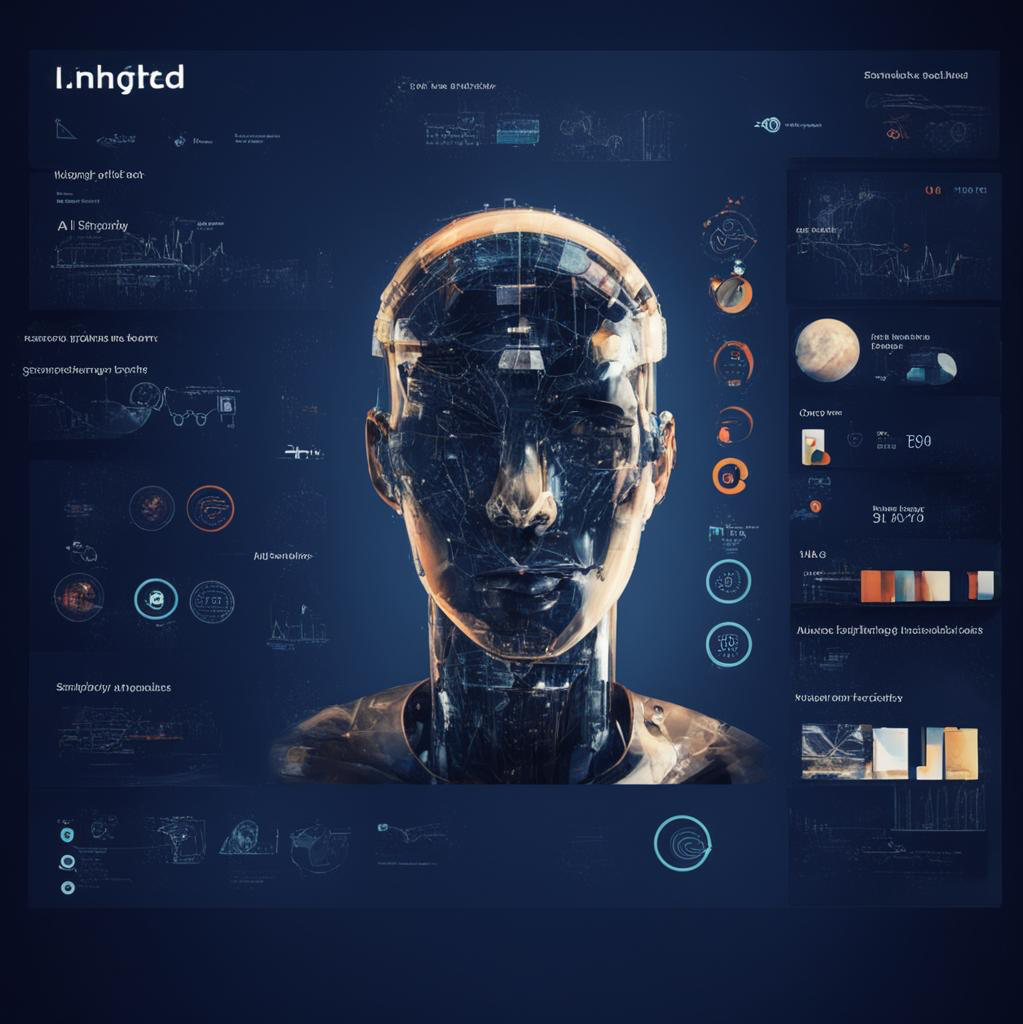
In this era of technological advancements, artificial intelligence has taken center stage in transforming various industries. From healthcare to finance, AI has revolutionized how businesses operate and interact with customers. And now, it’s time for the sales industry to embrace this game-changing technology.
Introducing ChatGPT – an AI-powered chatbot that is set to redefine the way sales teams engage with prospects and close deals. With its remarkable capabilities and natural language processing abilities, ChatGPT opens doors to a whole new world of possibilities for sales professionals.
So grab your virtual seatbelt as we dive into the exciting realm where AI meets sales strategies. Get ready to discover how ChatGPT can take your team’s performance to unprecedented heights!
The Impact of Artificial Intelligence on The Sales Industry
Artificial intelligence has been a game-changer in various industries, and the sales industry is no exception. The impact of AI on sales strategies has opened up new possibilities and transformed the way businesses interact with customers.
One major benefit of AI in sales is its ability to analyze massive amounts of data quickly and accurately. With AI-powered tools like ChatGPT, companies can gather insights about customer preferences, behavior patterns, and buying habits. This invaluable information helps businesses tailor their sales approaches and offer personalized experiences to customers.
AI-powered chatbots have revolutionized customer service by providing instant responses to queries. These intelligent bots can handle routine inquiries efficiently, freeing up human agents’ time for more complex tasks. Customers appreciate the convenience of getting immediate assistance round-the-clock without having to wait in long queues or navigate complicated phone menus.
AI technology enables predictive analytics that empowers sales teams to forecast trends accurately. By analyzing historical data and market conditions, businesses can make informed decisions regarding product development, pricing strategies, or even identifying potential leads.
Another significant advantage of incorporating AI into sales strategies is enhanced lead generation. ChatGPT’s natural language processing capabilities enable it to engage potential customers through personalized conversations at scale. It can provide relevant information about products or services based on user input while capturing valuable contact details for follow-ups.
Using AI in sales streamlines administrative tasks such as inventory management or order tracking. Automated systems powered by machine learning algorithms ensure accurate inventory levels are maintained while reducing errors caused by manual processes.
However beneficial AI may be for the sales industry; there are some challenges that need careful consideration too. One concern revolves around maintaining a balance between automation and human interaction – striking the right balance ensures that customers receive personalized attention when needed while enjoying efficient self-service options for routine tasks.
The impact of artificial intelligence on the sales industry cannot be overlooked! From improved data analysis capabilities to enhanced customer service and lead generation, AI has transformed sales strategies.

How ChatGPT can Enhance Sales Strategies
ChatGPT, powered by OpenAI’s advanced language model, has the potential to revolutionize sales strategies and transform customer interactions. With its ability to generate human-like responses in real-time, ChatGPT can enhance the overall sales experience for both customers and sales teams.
One of the key ways that ChatGPT can enhance sales strategies is through its ability to provide instant support and guidance to customers. By leveraging natural language processing capabilities, ChatGPT can understand customer queries and provide relevant product information or recommendations. This not only saves time for both parties involved but also ensures a personalized experience for each customer.
ChatGPT can assist sales teams in lead generation and qualification processes. The AI-powered chatbot can engage with potential leads through various channels such as websites or messaging platforms. It can ask qualifying questions, gather important data points, and even schedule appointments or demos. This streamlines the lead management process and allows sales representatives to focus on high-value activities.
ChatGPT enables proactive engagement with customers throughout their journey. It can be programmed to send personalized messages or follow-ups based on specific triggers like abandoned carts or previous interactions. By maintaining continuous communication with customers, businesses have a better chance of nurturing leads into conversions while building strong relationships along the way.
Another advantage of using ChatGPT in sales strategies is its scalability. Unlike human agents who are limited by time constraints and availability, AI-powered chatbots like ChatGPT can handle multiple conversations simultaneously without compromising on quality or response time. This means businesses can cater to a larger number of customers efficiently without sacrificing individual attention.
Incorporating ChatGPT into your sales strategy opens up new possibilities for enhancing customer experiences while optimizing business operations. From providing instant support and guidance to generating qualified leads and enabling proactive engagement – ChatGPT empowers companies with an intelligent tool that complements their existing resources in driving revenue growth.
Tips for Implementing ChatGPT in your Sales Team
Implementing ChatGPT in your sales team can be a game-changer for your business. Here are some tips to help you seamlessly integrate this powerful tool into your sales strategies.
1. Start with a clear objective: Clearly define what you want ChatGPT to achieve for your sales team. Whether it’s generating leads, qualifying prospects, or providing personalized recommendations, having a specific goal will guide the implementation process.
2. Train and fine-tune the model: The initial training of ChatGPT may require some time and effort but is crucial for optimal performance. Provide it with relevant data from previous interactions and continually refine its responses based on feedback from both customers and your sales team.
3. Set boundaries and guidelines: While ChatGPT offers great flexibility, it’s essential to establish guidelines to ensure accurate representation of your brand voice and maintain ethical standards. Define limits on topics, tone, or language that align with your company values.
4. Human supervision is key: Although ChatGPT is capable of handling many customer queries independently, human oversight is necessary to address complex issues or sensitive situations effectively. Assign dedicated resources within your sales team who can monitor conversations and step in when needed.
5. Continual improvement through feedback loops: Regularly review customer interactions handled by ChatGPT and collect feedback from both customers and the sales team. This iterative process will enable you to identify areas for improvement, update responses accordingly, and enhance overall performance over time.
6. Analyze data-driven insights: Leverage the power of AI-generated analytics provided by chatbot platforms like ChatGPT to gain valuable insights into customer behavior patterns, popular inquiries,
and potential pain points along their buying journey.
7. Integrate seamlessly across channels : Extend the capabilities of ChatGpt by integrating it across various communication channels such as website live chats,email marketing campaigns,and social media platforms.
Ensuring seamless integration will provide consistent experiences for customers regardless of where they interact with your brand.
Potential challenges and solutions for using ChatGPT in sales
Implementing ChatGPT into sales strategies can offer numerous advantages, but it’s essential to be aware of potential challenges that may arise. One challenge is ensuring the accuracy and reliability of responses generated by ChatGPT. As an AI-powered tool, it may occasionally provide incorrect or inadequate information, leading to misunderstandings or miscommunication with customers.
To address this challenge, continuous monitoring and training are crucial. Regularly reviewing the conversations between ChatGPT and customers allows sales teams to identify any inaccuracies or gaps in knowledge. This feedback can then be used to fine-tune the AI model, improving its performance over time.
Another challenge is maintaining a personalized touch when using an automated system like ChatGPT. Customers value human interaction and personalized experiences in their interactions with businesses. To overcome this hurdle, integrating customer data into the chat system becomes vital. By leveraging customer profiles and past interactions stored in CRM systems, sales agents can tailor their approach even when utilizing automation tools.
Data privacy is another concern when implementing AI-powered chat solutions for sales purposes. Protecting sensitive customer information should always be a top priority for organizations. Implementing robust security measures such as encryption protocols and access controls helps safeguard customer data from unauthorized access or breaches.
Language limitations can pose a challenge if your business operates internationally or serves diverse markets with different languages and cultural nuances. In such cases, investing in multilingual versions of ChatGPT becomes necessary to cater to a wider audience effectively.
Addressing these challenges requires ongoing collaboration between sales teams and technology experts within an organization. Continuous feedback loops help refine the AI model while maintaining high standards of personalization ensures that customers feel valued throughout their interactions.
By understanding these potential obstacles associated with integrating ChatGPT into sales strategies proactively, companies can adopt effective solutions that enhance communication efficiency while delivering exceptional customer experiences.
Future Possibilities and Advancements with ChatGPT in Sales
Future possibilities and advancements with ChatGPT in sales are vast and exciting. As artificial intelligence continues to evolve, so too will the capabilities of ChatGPT in revolutionizing the sales industry.
One potential advancement is the ability for ChatGPT to analyze customer data in real-time, providing sales teams with valuable insights and predictive analytics. This means that businesses can anticipate customer needs and preferences more accurately, allowing them to tailor their approach and increase conversion rates.
Another possibility is the integration of ChatGPT into virtual shopping experiences. Imagine being able to have a natural conversation with an AI-powered chatbot while browsing online products. The chatbot could provide personalized recommendations based on your preferences, answer questions about product details, and even assist with completing purchases.
As natural language processing algorithms improve, ChatGPT has the potential to become even more adept at understanding nuanced customer conversations. This would enable sales teams to automate more complex interactions, freeing up time for higher-value tasks such as relationship building or strategic planning.
Advancements in machine learning techniques may lead to improved training processes for ChatGPT models specifically designed for sales purposes. These models could be trained on large amounts of industry-specific data, allowing them to better understand market trends and consumer behavior.
The future possibilities with ChatGPT in sales are limited only by our imagination and technological advancements. With continued research and development in AI technology, we can expect even greater enhancements that will transform how businesses interact with customers and drive sales growth.

